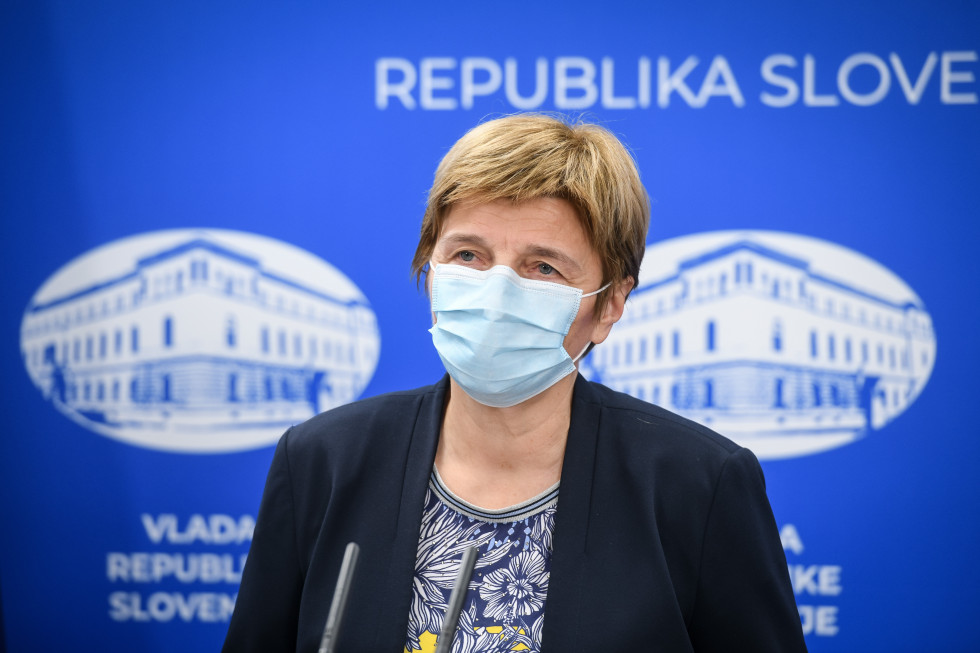By: P.T., source: gov.si
Marija Magajne, State Secretary at the Ministry of Health, presented the vaccination process and a new system of rapid testing in the country.
Government spokesperson Jelko Kacin first revealed the epidemiological data, according to which a total of 2,671 PCR and rapid tests were done on Sunday. Some 744 tests were positive, i.e. 31.1 per cent of PCR and 17.5 per cent of rapid tests. The total proportion amounted to 27.9 per cent.
Some 103 patients were admitted to hospitals yesterday, and 114 on Saturday. Some 38 patients were discharged on Saturday; a total of 67 persons over the weekend. A total of 1,209 COVID-19 patients were treated in hospitals yesterday, which is 36 more than on Saturday. Some 194 patients require intensive care, i.e. four more than on Saturday. Some 35 people died, 30 in hospitals and five in retirement homes.
On Sunday, 59 residents and eight employees in retirement homes tested positive, preceded by 11 residents and 11 employees on Saturday.
Some 16,575 doses of vaccine arrived today, and these will be earmarked for staff in health institutions, emphasised Magajne. The delivery expected next week is already earmarked for those elderly who do not live in retirement homes. This is in accordance with a priority list compiled in order of age from the oldest to the youngest.
The interest of local communities in organising rapid testing is great and so this exercise is being implemented in numerous municipalities as of today.
The application of rapid testing will also be considered by the Ministry when deciding on the easing of certain measures, which could subsequently be accomplished more quickly.
The Ministry has no data regarding adverse side effects in people who were vaccinated. The sixth dose is the expert decision of the health professional performing the vaccination.
The Slovenian regulatory body will not amend the provision on the anticipated possible number of doses from one vial, so the recommendation of the advisory group is the only one that the providers must observe when performing vaccination.
In the two regions with the worst situation, the regional units of the National Institute of Public Health are implementing promotional activities to encourage the residents of these two regions to apply the preventive measures as much as possible as well as decide to use the option of rapid testing.

